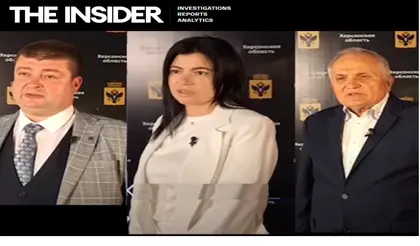The report by Ria Novosti on April 9 was headlined as: “Bulgarian community: Ukraine shells places where ethnic Bulgarians live,” and went on to quote Gennady Nedyalkova, self-styled representative of the Bulgarian community and chairman of the Council of Deputies of the Golopristansky Municipal District in the Kherson region as saying: “The weapons that Bulgaria supplies to Ukraine are used in peaceful settlements where ethnic Bulgarians live.”
[The] “district... is under constant fire from the Ukronazis. And, to my great regret, our partisans [in the Kherson region] discovered that these shells were produced at the Arsenal plant in Bulgaria, the city of Kazanlak, and transported through air corridors to Ukraine,” Nedyalkov said.
He went on to say that representatives of his Bulgarian community had made a video appeal to the authorities in Sofia to prevent further supplies of ammunition being sent to Kyiv to stop “Bulgarians killing Bulgarians.”
The appeal, which was directed at Bulgarian President Rumen Radev and featured Nedyalkov and two other representatives, was published on the Bulgarian news site Glasove.
The independent Russian news site Insider.RU examined the claims made in further detail in its “Fake News” section.
They first commented that Nedyalkov was speaking Russian in the video although his wife, Lyubov Nedyalkova, did speak in Bulgarian. The third participant was, Ivan Abazher, who is claimed to be the head of the Crimean Bulgarian National-Cultural Autonomy. Insider commented wryly, perhaps they couldn’t find a third Bulgarian in the Kherson region.

Russian Soldiers Sabotage Their Boats to Avoid Storming Dnipro Islands, Partisans Say
The Nedyalkovs claim that around 2,000 ethnic Bulgarians were at risk in the Golopristansky and Oleshkivskyi areas of the Kherson region, even though Ukraine’s 2001 census identified only 1,000 or so living in the area – and then mostly in Kherson city and Novaya Kakhovka.
Following the June 2023 destruction of the Kakhovka dam, Bulgarian websites, such as Bourgas, reported the safe evacuation of Bulgarians living in the city, and the flooded areas of the liberated and unoccupied parts of the region.
Bearing all this in mind, although the areas mentioned lie in occupied areas of the region it is hard to see where the quoted number of Bulgarians, twice the number residents in the regional center in 2001 came from.
Insider also points out that the two districts, Golopristansky and Oleshkivskyi, were abolished, in 2020, to become part of the Kherson and Skadovsky districts.
Nedyalkov, 44, is listed as a collaborator with Russian occupying forces on the Evocation database of “collaborators, traitors and propagandists,” having been made head of the administration of the town of Hola Prystan, 15 kilometers southeast of Kherson city.
Nedyalkov is a former businessman and owner of several meat packing companies, who was suspected of smuggling meat into Crimea shortly after Russia’s illegal annexation of the peninsula.
All things considered Insider including this in its Fake News segment seems appropriate.
You can also highlight the text and press Ctrl + Enter






